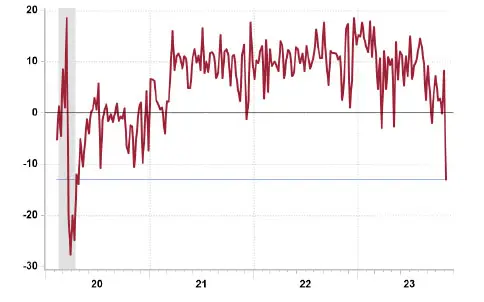Forecasting macroeconomic trends is crucial for investment advisors, requiring close observation of key economic indicators like growth rates, unemployment figures, and consumer sentiment. These factors are vital signs of the economy’s health, highlighting potential investment opportunities. Additionally, movements in fiscal and monetary policies play a significant role in shaping these investment strategies. Analyzing historical economic data enhances forecasting accuracy, akin to using a map from past journeys to gain insights into possible future market behaviors. It involves drawing connections from economic signals to historical trends to anticipate future scenarios. Ready to explore these connections?
The Art of Macroeconomic Analysis for Investment Advisors
Macroeconomic analysis for investment advisors is not solely about understanding complex economic indicators; it involves interpreting intricate patterns within these indicators to derive actionable insights. This analysis forms the foundation for developing and refining investment strategies that are responsive to prevailing economic conditions.
Investment advisors must meticulously evaluate indicators such as GDP growth, inflation rates, unemployment figures, and consumer sentiment to assess the economy’s health. These indicators provide insights into how different sectors are performing and signal potential shifts in the investment landscape. For example, strong GDP growth or low unemployment might suggest opportunities in sectors like technology or consumer discretionary goods, while high inflation could indicate the resilience of the utilities and healthcare sectors.
Consider the current economic environment: Despite uncertainties around interest rates and inflation, robust home sales and strong stock market performance indicate valuable investment opportunities. Advisors must interpret these trends to guide their clients towards sound investment decisions.
Additionally, a deep understanding of fiscal and monetary policies is essential, as these policies significantly influence financial markets. For example, changes in interest rates and government spending can affect bond yields, stock valuations, and currency exchange rates, directly impacting investment strategies.
Effectively macroeconomic analysis involves more than just data analysis; it requires translating these insights into strategic investment decisions that consider the client’s goals and risk tolerance. This ensures the creation of robust investment portfolios that can withstand economic ups and downs and achieve long-term growth.
Historical Data: A Key to Unlocking Market Trends
Understanding historical economic patterns is crucial for forecasting and preparing for the future. Investment advisors gain valuable perspectives by analyzing historical data, which helps identify patterns, trends, and anomalies across different economic conditions.
Historical data provides a rich context for understanding how the economy has responded to various events, policy changes, and market shifts over time. For example, by examining the stock market’s performance over the past 50 years, advisors can identify how major economic events have historically affected markets. These insights are invaluable for developing strategies that address similar future scenarios.
In essence, historical data acts as a navigational tool, guiding investment advisors through economic cycles by offering a detailed understanding of market reactions to past challenges and opportunities. Recognizing recurring economic patterns and market behaviors also helps advisors make informed decisions about investment strategies that are likely to succeed in various market conditions.
By thoroughly analyzing historical data, investment advisors are equipped with a comprehensive view of economic trends, enabling a proactive and informed approach to identifying investment opportunities and managing risks in a dynamic financial landscape. Armed with this knowledge, advisors are better prepared to employ sophisticated forecasting techniques to capitalize on economic growth and enhance productivity.
Forecasting for Economic Growth and Productivity
For investment advisors, economic forecasting is essential to understanding the potential impact of economic growth and productivity on various industry sectors and markets. This skill involves a careful blend of quantitative and qualitative analysis to create accurate forecasts.
Quantitative analysis focuses on hard data such as GDP growth rates, productivity metrics, and trade balances. Qualitative analysis, on the other hand, assesses the more subjective influences on economic trends, including technological advancements, government policies, and global trade dynamics. Together, these analyses help advisors predict changes and identify new investment opportunities.
For example, a breakthrough in renewable energy technology, coupled with supportive government policies, can create lucrative opportunities in the clean energy sector. Advisors need to understand how these elements interact and influence each other, synthesizing them into a comprehensive outlook that informs investment strategies.
Investment advisors utilize economic indicators to forecast future conditions. This requires continuous learning and staying informed about global events and trends to navigate the complex economic landscape effectively.
As the economic environment evolves, advisors must adeptly anticipate how changes in employment rates and economic output can affect markets and investment opportunities. Recognizing these shifts is crucial for developing strategies that capitalize on or safeguard against economic fluctuations.
Anticipating Employment Rates and Output Influence
Understanding employment rates is critical for investment advisors, as they significantly influence economic vitality. Employment levels affect consumer spending and, by extension, the overall economic output. When employment rates are high, there is typically an increase in consumer spending, which can boost demand for goods and services and stimulate production across industries. This increased economic activity often supports other sectors, such as the housing market, where higher employment levels enable more people to afford major purchases.
Conversely, if employment rates fall, consumer spending usually declines, which can have a domino effect across various sectors. Reduced consumer spending can lead to decreased industrial production, layoffs, and a sluggish housing market. The economic impact of a major employer shutting down in a town, for instance, can be profound, affecting local businesses and the broader community.
Advisors must monitor these trends closely to advise their clients effectively. During periods of strong employment growth, opportunities might arise in consumer-driven sectors. However, during economic downturns or when employment stagnates, a shift towards more stable, recession-resistant sectors might be advisable.
Effective forecasting and strategic planning based on employment trends allow investment advisors to guide their clients through the complexities of market conditions with informed, strategic investment decisions. This proactive approach is essential for navigating the intricacies of global economic trends with precision and confidence.
Strategies to Navigate Global Economic Trends
Navigating the complex world of global economic trends is essential for investment advisors, as geopolitical events, trade policies, and currency movements significantly shape investment landscapes. Understanding these factors is crucial in managing risks and identifying opportunities within international markets.
Geopolitical Events: Events such as regional conflicts, wars, or diplomatic disputes can inject considerable uncertainty into financial markets, affecting asset prices and potentially disrupting market segments. It is crucial for investment advisors to stay informed about these developments and anticipate their impacts on investment portfolios. Advisors must provide guidance to clients on navigating through these uncertainties by staying resilient and adaptive to sudden market changes.
Trade Policies: Changes in trade policies, including tariffs and trade agreements, significantly impact import-export dynamics and can influence currency volatility. These changes affect the business environment for globally operating companies and require advisors to be proactive in understanding and anticipating policy shifts. This knowledge allows advisors to make informed decisions about international investment opportunities and adjust client portfolios in response to new trade policies.
Currency Movements: Currency fluctuations play a critical role in the international investment landscape, affecting the returns on foreign investments. Advisors need to monitor these movements closely and understand their implications on investments. Analyzing currency trends helps advisors manage the currency risk in client portfolios and capitalize on favorable movements to maximize returns.
Advisors must integrate their understanding of geopolitical risks, trade policy changes, and currency fluctuations to provide comprehensive advice that covers all aspects of international investing. This comprehensive approach helps in effectively managing risks and exploiting opportunities arising from global economic trends.
Empowering Clients with Knowledge-Based Investment Advice
The role of an investment advisor extends beyond making investment recommendations; it involves educating clients about how macroeconomic factors affect the market and their investments. This education is crucial for clients to make informed decisions and feel confident about their investment strategy.
Advisors should use their understanding of macroeconomic trends to explain potential impacts on client portfolios. For instance, discussing how inflation or changes in interest rates could affect investment returns helps clients understand the broader economic context of their investments.
This educational approach not only helps build trust but also empowers clients to make knowledgeable decisions about their investments. By explaining the reasons behind certain investment strategies and how they relate to global economic conditions, advisors can strengthen client relationships and build credibility.
Regular communication about how geopolitical events, trade policies, and other macroeconomic factors might impact investments is key. These discussions ensure clients are well-prepared and can react thoughtfully to market changes.
Ultimately, by coupling macroeconomic insights with a strong emphasis on client education, investment advisors can enhance their advisory services, providing clients with the knowledge to navigate the complexities of global markets confidently.
For more expert insights and personalized investment strategies, sign up for our free trial at Rosenberg Research or call us at 416-583-5566.


